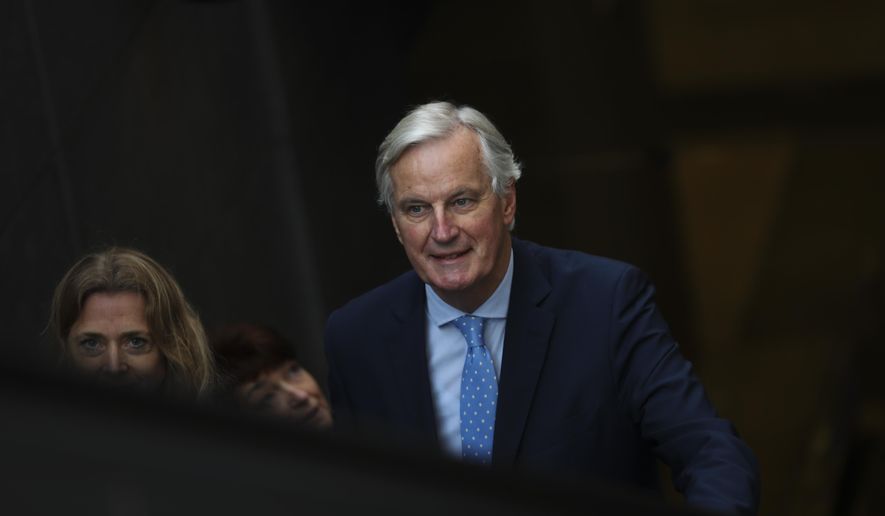LISBON, Portugal (AP) - European Union Brexit negotiator Michel Barnier on Tuesday drew the battle lines for the upcoming free trade talks with the U.K. once it has left the bloc and warned Britain not to undercut EU standards.
Barnier said the trade talks after Britain leaves as expected on Jan. 31 might be as tough as the long-running Brexit divorce negotiations, which have consumed much of the last three years. He said whatever trade agreement emerges, it will cost U.K. businesses, since they would now be outside the 28-nation bloc.
Currently, there is seamless trade and zero tariffs under common regulations since the U.K. is part of the EU and has unfettered access to a market of almost half a billion consumers.
With its Brexit departure, the U.K. hopes to maintain as much access as possible to that wealthy market while at the same time be free to revamp its whole economy, unshackled from EU rules and regulations.
Barnier’s message was clear - there is no way that will happen.
In the EU, there are fears that Britain will transform itself into a low-regulation economy that would undercut stringent EU social, environmental and other standards.
Barnier warned that “the U.K. should not think that zero tariffs, zero quotas will be enough. The EU will insist on zero tariffs, zero quotas and zero dumping.”
“There will be more economic competition - OK - between the EU and the U.K., and that is normal. But the EU will not tolerate unfair competitive advantage,” he warned at the Web Summit in Lisbon.
Outgoing British Prime Minister Boris Johnson has insisted he wants a “best-in-class” free trade agreement, which comes down to the best trade deal that still allows the U.K. to diverge from EU standards, and potentially head to a U.S.-style low regulation economy.
The EU definition of “best” is different, Barnier said.
“For us, it means a free trade agreement whose aim is not only economic and financial profit with zero tariffs and zero quotas but which is also in the interest of the people, their environmental and living standards,” he said.
Current plans call for Britain to leave the bloc on Jan. 31 and end a transitional trade period as soon as the end of 2020. Considering that major international trade deals can often take over half a decade to clinch, that seems a precipitously short time.
Barnier told the Web Summit that by next summer, it will be clear if the Brexit trade transition period will have to be extended beyond the end of next year.
___
Casert reported from Brussels. Jill Lawless contributed from London.
___
Follow AP’s full coverage of Brexit and British politics at https://www.apnews.com/Brexit




Please read our comment policy before commenting.